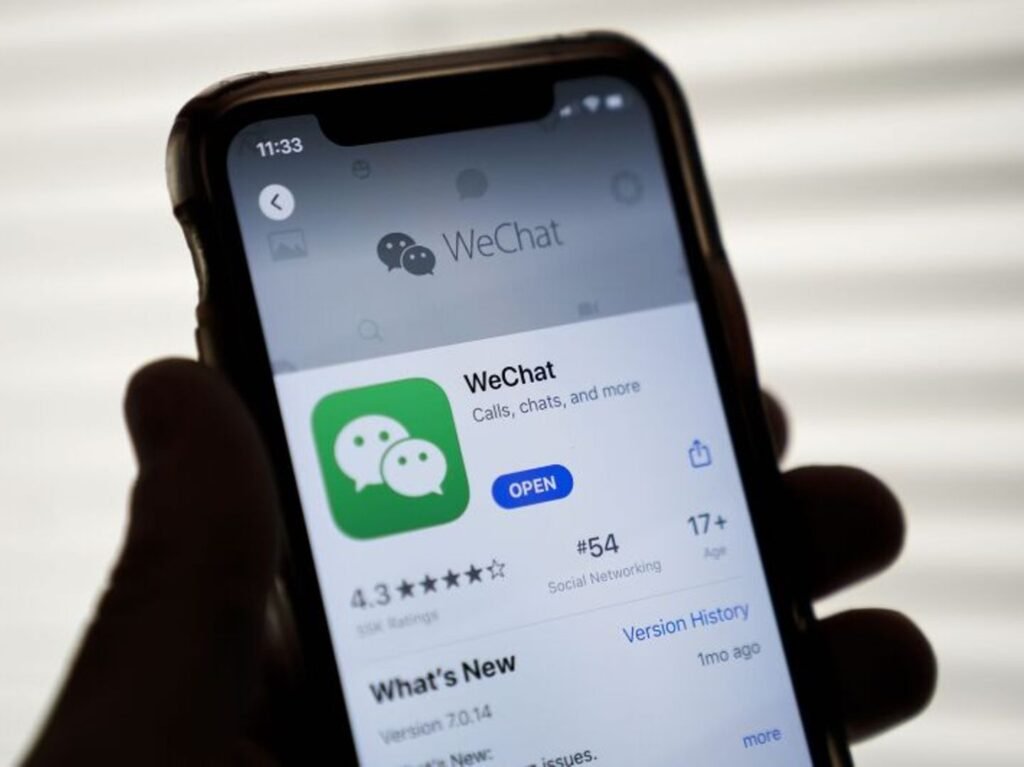
Canada has prohibited the use of the Chinese super-app WeChat on official government devices due to cybersecurity risks, following a similar action taken against the short-form video app TikTok earlier this year.
The most recent ban, announced on Monday and put into effect on the same day, also applies to applications from Kaspersky Lab, a Russian antivirus program maker.
The Chief Information Officer of Canada has determined that “WeChat and the Kaspersky suite of applications pose an unacceptable level of risk to privacy and security,” according to a statement from the Treasury Board of Canada, which oversees public administration.
On mobile devices, both applications have extensive access to the device’s contents through their data collection methods, even though there is no evidence of government information compromise.
Users of Canadian government cellphones will have these apps removed, and future downloads will be blocked.
WeChat, often described as a combination of Facebook, Twitter, Snapchat, and PayPal, is one of the world’s most popular apps, with over 1 billion users, primarily in mainland China, relying on it for a wide range of activities.
In February, the Canadian government banned TikTok, owned by Beijing-based ByteDance, from government-issued mobile devices due to cybersecurity concerns.
US and allied officials have expressed worries about TikTok or ByteDance potentially being compelled by the Chinese government to provide TikTok users’ personal information.
A former ByteDance employee, Yintao Yu, has made claims that the Chinese Communist Party accessed TikTok user data for political purposes, which TikTok disputes.
Compared to TikTok, WeChat has been less of a target for global governments, mainly because it is more popular among Chinese speakers.
In August 2020, former US President Donald Trump attempted to ban both WeChat and TikTok through executive orders, which were later blocked.
President Joe Biden subsequently revoked these orders.